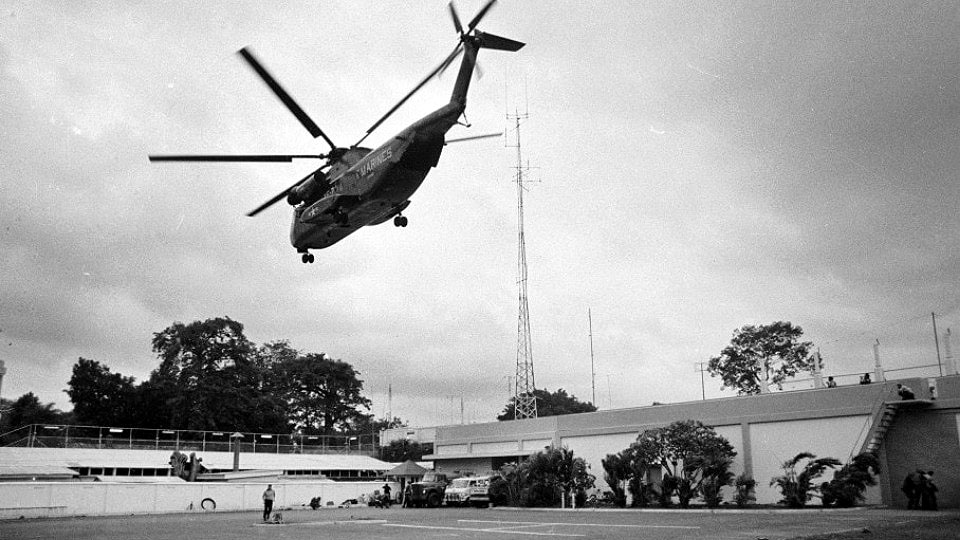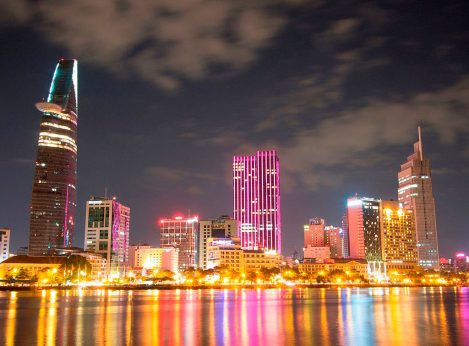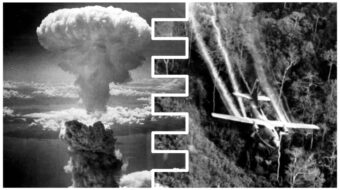
April 30, 2021, marks the 46th anniversary of the fall of Saigon, and the end of the conflict known in the U.S. as the Vietnam War. This anniversary provides an opportunity to review the mistakes of the past so as to make sure they are not repeated again. What started America’s most traumatic war, and what led eventually to it one of its military’s biggest defeats?
Like most conflicts of the era, the seeds were laid by use of “the Red Scare.” Americans were told that if communism spread to all of Vietnam, it would cause a “domino effect” and spread to Laos and then Thailand and, by implication, to the rest of the world. At this point, the U.S. public had already been inundated with decades of anti-communist propaganda that sought to program them to react with fear and violence at this prospect.
The next step for the dogs of war was to light a fuse that would lead to direct conflict. This came in the form of “The Gulf of Tonkin Incident,” a false flag attack on U.S. Navy vessels off the coast of North Vietnam. On Aug. 2, 1964, the U.S.S. Maddox was sent into North Vietnamese waters to incite a response. This was followed by a completely fictitious “attack” by Vietnamese forces two nights later. This “incident” was used by the administration of President Lyndon Johnson to seek authority from Congress to go to war in Vietnam.
What followed was nearly a decade of fighting, tens of thousands of dead American draftees—mostly from poor and working-class backgrounds—and the death of millions of Vietnamese people. Many forget that at the start of the war, U.S. public opinion polls showed a high level of support for the war. However, as it dragged on and casualties mounted, it became less and less popular. A mass peace mobilization at home demanded the withdrawal of forces from Southeast Asia, which eventually happened. In the end, U.S. imperialism was defeated, and the Vietnamese people were able to reunite their country in 1975.
After the war, “communism” did spread to Laos as well, another country, like Cambodia, which was heavily bombed by the U.S. during its war against Vietnam. Did this “spread of communism” have any negative impact on the U.S. people, as they were led to believe it would? None at all. The only negative effect for the people of the United States was that their own nation was left deeply divided over the long and bloody war. For the Vietnamese and Laotian people, “the spread of communism” brought national unity and, since the 1980s, growing levels of prosperity.
Why is it important that we review this history now?

Because we are in danger of watching it be repeated with what is been dubbed “the New Cold War.” The Red Scare and anti-communism are back. Much of the mainstream media and elites in Washington that serve the military-industrial complex and its lobbyists are constantly saturating U.S. news and television with the message that they need to be scared of the “CCP,” the often misused acronym of the Communist Party of China.
The false flags are back as well, and this time with a whole grab bag of options. One article will tell you that COVID-19 was created in a “CCP lab,” despite the lack of any evidence. Another article will warn of religious oppression, once again without any concern for evidence. We are told that Chinese police are “brutally cracking down on Hong Kong protesters” despite not a single protester being reported killed by the state (in sharp contrast to the large numbers of American citizens U.S. police kill annually). And to top it off, the U.S. military—together with its allies—is trying to provoke an incident around Taiwan, despite the U.S. having agreed in the 1970s to follow the “One China Policy” that recognizes Taiwan as part of China.
We must learn from history. We cannot be tricked again into supporting a new war because of Red Scare anti-communist tactics or fall for false flags. Let this April 30th be a day that we remember these important lessons and not find ourselves once again fighting hot wars in a new Cold War.
As with all op-eds published by People’s World, this article reflects the opinions of its author.










